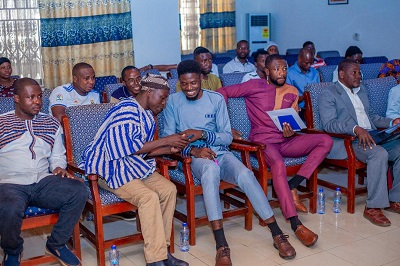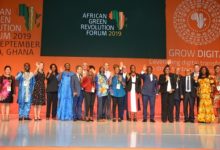IC4C appeals for removal of barriers to accessing sexual, reproductive information by youth in UWR

An alliance of youth advocacy groups in the Upper West Region called the Youth Network for Informed Choices for Change (IC4C) have appealed to stakeholders to remove barriers that hindered access to sexual and reproductive health information by the youth in the region.
Adolescents, according to studies conducted by the group, relied more on their peers for information on their sexual health due to cultural barriers, non-professionalism on the part of people responsible for the education and unfriendly adolescent corners at the various health centres, particularly those in rural areas.
The Youth Network included youth groups such as Necessary Aid Alliance, Upper West Regional Youth Parliament, Young Africa Great Minds and Ghana Youth Federation, Upper West Region.
Speaking on behalf of the group, the Executive Director for the Necessary Aid Alliance, Mr Mulumba Songsore, called for concerted efforts from stakeholders to ensure that those barriers were removed to enable the youth access quality reproductive health education from the right sources.
The Youth Network outlined the concern on Saturday at a stakeholders’ meeting on Reproductive Health Education (RHE) under the IC4C project which was been implemented by Norsaac, a non-governmental organisation in the Northern Region.
Norsaac was working in the region through the Youth Network to source for information via research and experience sharing to help suggest better ways to handle RHE among the youth.
Mr Mulumba indicated that due to cultural barriers, many adolescents were uncomfortable discussing issues of reproductive health with their parents and would rather interact with their friends or get the information through their lessons at school which according to him was not adequate to fill the knowledge gap of the youth.
“Sometimes people go to adolescent corners for information and by the time they get to the house, everyone in the house is aware of the services that was rendered to them at the health centres and this is mostly common in the rural areas and smaller communities,” he said.
He described the act as non-professional and said health workers in charge of such education at the respective adolescent corners should receive constant training on how to deal with the emerging needs of the adolescents and also protect their information to restore their confidence in the corners.
“Even when the adolescent musters courage to visit the adolescent corner, the setting and lack of privacy at the place discourage them from talking freely with the health worker so in one of our studies on this issues, a health worker confirmed that some of the adolescent girls would come with issues of sexually transmitted infections but would end up talking about something else due to the fact that others in queue could hear the conversation,” he said.
In a bid to meet the RHE needs of the girls, Mr Songosore was of the view that until those factors were dealt with adolescents would continue to rely on friends for information, taking cognisance of the fact that most of them were sexually active.
He mentioned that the lack of information from the right sources was what had led to increased teenage pregnancies, unsafe abortions and other social vices among the youth and challenged the various institutions responsible for RHE to work together to ensure that the barriers were removed.
FROM LYDIA DARLINGTON FORDJOUR, WA







